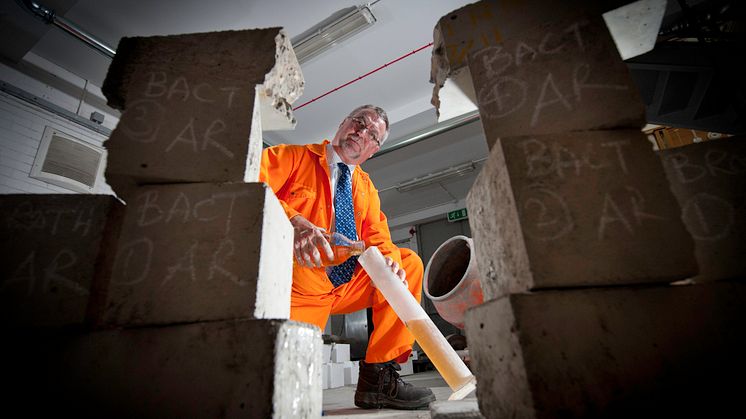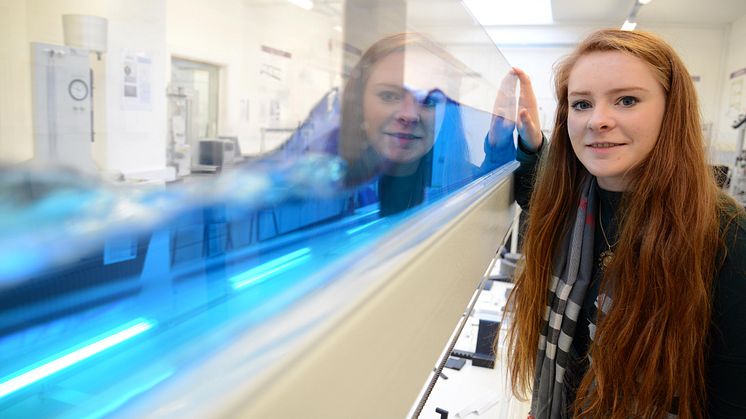
Press release -
Turning research into concrete savings
New research into an innovative ‘self-healing’ concrete, which could save the UK £80 billion in repairs, will be discussed during a public seminar at Northumbria University this week.
Repairing cracks in concrete structures can be time consuming and expensive, but academics at Northumbria and Delft universities are working to develop a self-repair system which uses natural bacteria to seal cracks, preventing so-called ‘concrete cancer’.
Henk Jonkers, of Delft University of Technology in the Netherlands, will reveal the latest findings during an event on Wednesday. His seminar will centre on the research of Dr Alan Richardson, reader in Mechanical and Construction Engineering at Northumbria.
Dr Richardson said: “The cost of repairing the UK’s aging concrete infrastructure is estimated to be £80 billion. The work involved in carrying out these repairs is labour intensive and an expensive job for both the tax payer, who funds infrastructure via taxation, and the individual owners of structures.
“Self repairing materials can significantly reduce the cost of repairs as well as lowering the environmental impact from repair systems to structures. Our proposed self-repair system is available when and where required without any human intervention and with a zero environmental impact.”
The self-healing concrete uses a ground-borne bacteria - bacilli megaterium - to create calcite, a crystalline form of natural calcium carbonate. This can then be used to fill existing cracks and block the concrete’s pores, keeping out water and other damaging substances to prolong the life of the concrete.
The bacteria is grown on a nutrient broth of yeast, minerals and urea and is then added to the concrete. With its food source in the concrete, the bacteria breeds and spreads, acting as a filler to seal the cracks and prevent further deterioration.
It is hoped that the research could have enormous commercial potential through further development and extended testing of the possibility of strengthening soil materials through a similar process.
The seminar takes place from 1pm to 2pm on Wednesday 5 April in Ellison building B0001, Northumbria University. It will be followed by an informal discussion on self-healing cementitious materials between 2.30pm – 4.30pm.
To register your interest in attending the seminar and/or discussion please email Michael.lim@northumbria.ac.uk or telephone 0191 243 7094.
For more information on self-healing concrete, please visit: https://www.northumbria.ac.uk/about-us/academic-departments/mechanical-and-construction-engineering/research/civil-engineering-heritage-and-future/self-healing-concrete/
Topics
Northumbria is a research-rich, business-focused, professional university with a global reputation for academic excellence. To find out more about our courses go to www.northumbria.ac.uk
If you have a media enquiry please contact our Media and Communications team at media.communications@northumbria.ac.uk or call 0191 227 4571.








